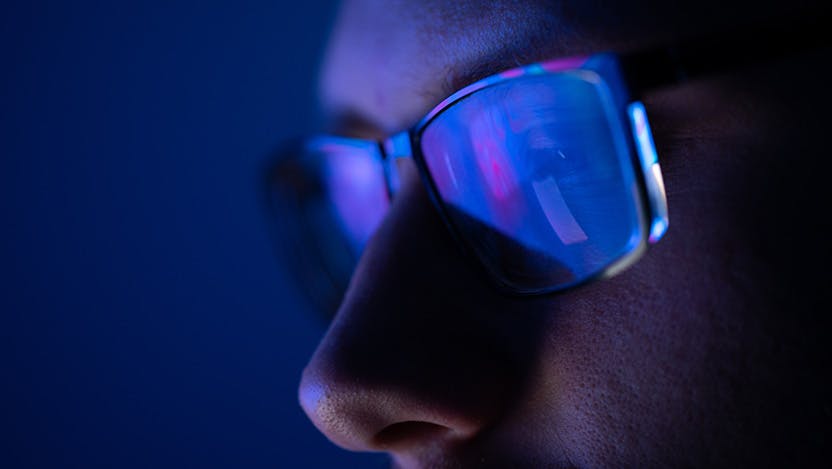In a world that revolves around digital screens, our exposure to blue light is at an all-time high. From morning to night, we find ourselves constantly glued to our smartphones, tablets, and computers. But the question remains: do we really need the growing trend of blue light blocking glasses, or is it just another gimmick in the wellness industry? Let’s delve into the facts and myths surrounding blue light blocking to determine whether we truly need it in our daily lives.

How Blue Light Affects Your Health
Blue light is a type of high-energy visible (HEV) light that is emitted from screens of electronic devices like smartphones, tablets, and computers. While blue light has been shown to disrupt sleep patterns and cause digital eye strain, there is ongoing debate about its potential long-term effects on our health.
Research suggests that exposure to blue light may increase the risk of eye diseases such as macular degeneration. Additionally, blue light has been linked to disruptions in our circadian rhythm, which can lead to poor sleep quality and overall health.
One way to reduce the negative effects of blue light is by using blue light blocking glasses or screen filters. These products are designed to reduce the amount of blue light that reaches our eyes, helping to protect our vision and improve our sleep quality. While more research is needed to fully understand the impact of blue light on our health, taking steps to minimize exposure may be beneficial in the long run.
Benefits of Blue Light Blocking Glasses
Blue light blocking glasses have gained popularity in recent years for their ability to reduce eye strain and improve sleep quality. These glasses work by filtering out the harmful blue light emitted by screens, such as those from computers, phones, and televisions. By wearing these glasses, you can protect your eyes from the negative effects of prolonged screen time.
One of the key is their ability to improve sleep quality. Blue light has been shown to disrupt our natural sleep-wake cycle by suppressing the production of melatonin, the hormone responsible for regulating sleep. By wearing blue light blocking glasses in the evening, you can minimize this disruption and signal to your body that it is time to wind down and prepare for sleep.
In addition to improving sleep, blue light blocking glasses can also reduce eye strain and prevent digital eye fatigue. Prolonged exposure to screens can lead to symptoms such as dry eyes, headaches, and blurry vision. By wearing blue light blocking glasses, you can minimize these symptoms and protect your eyes from the harmful effects of screen time. So, do you need blue light blocking glasses? The answer may be yes if you spend long hours in front of screens and want to protect your eye health and improve your overall well-being.
When to Consider Using Blue Light Blocking Technology
Are you someone who spends a significant amount of time in front of screens, whether it be for work or leisure? If so, you may want to consider incorporating blue light blocking technology into your daily routine. Blue light is emitted from electronic devices such as smartphones, computers, and televisions, and prolonged exposure can have negative effects on your health.
By using blue light blocking technology, you can reduce eye strain and improve your overall sleep quality. The technology works by filtering out the harmful blue light, which can help alleviate digital eye strain and prevent disruption to your circadian rhythm. This can be especially beneficial for those who often find themselves scrolling through their devices before bedtime.
Whether you’re a student, office worker, or simply someone who enjoys using electronic devices, incorporating blue light blocking technology into your daily life can have numerous benefits. From reducing eye strain to improving sleep, the technology offers a simple yet effective way to protect your eyes and promote better overall health.
As you navigate the world of blue light blocking technology, remember that the decision ultimately lies in your hands. Whether you choose to invest in blue light blocking glasses, adjust your screen settings, or simply take regular breaks from your devices, the important thing is to prioritize your eye health and overall well-being. So, next time you find yourself pondering the question “Do I need blue light blocking?” trust your instincts and choose what feels right for you. After all, your eyes are the windows to your soul – let’s keep them shining bright.


